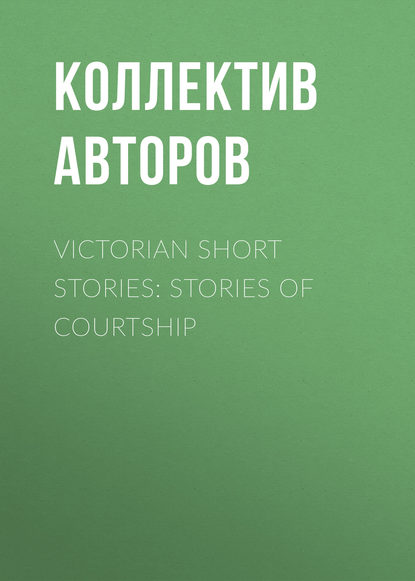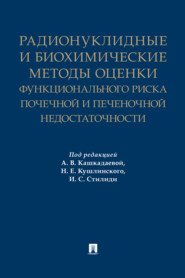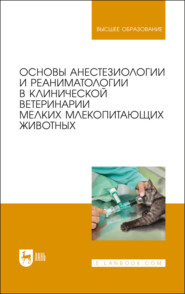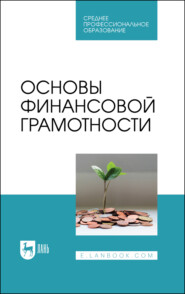По всем вопросам обращайтесь на: info@litportal.ru
(©) 2003-2024.
✖
Victorian Short Stories: Stories of Courtship
Настройки чтения
Размер шрифта
Высота строк
Поля
'Yes; I fancy that he is a punctual man,' said Patience.
'I hope that you will be glad to see him,' said Miss Le Smyrger.
'Very glad to see him,' said Patience, with a bold clear voice; and then the conversation was again dropped, and nothing further was said till after Captain Broughton's second arrival in the parish.
Four months had then passed since his departure, and during that time Miss Woolsworthy had performed all her usual daily duties in their accustomed course. No one could discover that she had been less careful in her household matters than had been her wont, less willing to go among her poor neighbours, or less assiduous in her attentions to her father. But not the less was there a feeling in the minds of those around her that some great change had come upon her. She would sit during the long summer evenings on a certain spot outside the parsonage orchard, at the top of a small sloping field in which their solitary cow was always pastured, with a book on her knees before her, but rarely reading. There she would sit, with the beautiful view down to the winding river below her, watching the setting sun, and thinking, thinking, thinking—thinking of something of which she had never spoken. Often would Miss Le Smyrger come upon her there, and sometimes would pass her even without a word; but never—never once did she dare to ask of the matter of her thoughts. But she knew the matter well enough. No confession was necessary to inform her that Patience Woolsworthy was in love with John Broughton—ay, in love, to the full and entire loss of her whole heart.
On one evening she was so sitting till the July sun had fallen and hidden himself for the night, when her father came upon her as he returned from one of his rambles on the moor. 'Patty,' he said, 'you are always sitting there now. Is it not late? Will you not be cold?'
'No papa,' she said, 'I shall not be cold.'
'But won't you come to the house? I miss you when you come in so late that there's no time to say a word before we go to bed.'
She got up and followed him into the parsonage, and when they were in the sitting-room together, and the door was closed, she came up to him and kissed him. 'Papa,' she said, 'would it make you very unhappy if I were to leave you?'
'Leave me!' he said, startled by the serious and almost solemn tone of her voice. 'Do you mean for always?'
'If I were to marry, papa?'
'Oh, marry! No; that would not make me unhappy. It would make me very happy, Patty, to see you married to a man you would love;—very, very happy; though my days would be desolate without you.'
'That is it, papa. What would you do if I went from you?'
'What would it matter, Patty? I should be free, at any rate, from a load which often presses heavy on me now. What will you do when I shall leave you? A few more years and all will be over with me. But who is it, love? Has anybody said anything to you?'
'It was only an idea, papa. I don't often think of such a thing; but I did think of it then.' And so the subject was allowed to pass by. This had happened before the day of the second arrival had been absolutely fixed and made known to Miss Woolsworthy.
And then that second arrival took place. The reader may have understood from the words with which Miss Le Smyrger authorized her nephew to make his second visit to Oxney Colne that Miss Woolsworthy's passion was not altogether unauthorized. Captain Broughton had been told that he was not to come unless he came with a certain purpose; and having been so told, he still persisted in coming. There can be no doubt but that he well understood the purport to which his aunt alluded. 'I shall assuredly come,' he had said. And true to his word, he was now there.
Patience knew exactly the hour at which he must arrive at the station at Newton Abbot, and the time also which it would take to travel over those twelve up-hill miles from the station to Oxney. It need hardly be said that she paid no visit to Miss Le Smyrger's house on that afternoon; but she might have known something of Captain Broughton's approach without going thither. His road to the Colne passed by the parsonage-gate, and had Patience sat even at her bedroom window she must have seen him. But on such an evening she would not sit at her bedroom window;—she would do nothing which would force her to accuse herself of a restless longing for her lover's coming. It was for him to seek her. If he chose to do so, he knew the way to the parsonage.
Miss Le Smyrger—good, dear, honest, hearty Miss Le Smyrger, was in a fever of anxiety on behalf of her friend. It was not that she wished her nephew to marry Patience,—or rather that she had entertained any such wish when he first came among them. She was not given to match-making, and moreover thought, or had thought within herself, that they of Oxney Colne could do very well without any admixture from Eaton Square. Her plan of life had been that when old Mr. Woolsworthy was taken away from Dartmoor, Patience should live with her, and that when she also shuffled off her coil, then Patience Woolsworthy should be the maiden-mistress of Oxney Colne—of Oxney Colne and of Mr. Cloysey's farm—to the utter detriment of all the Broughtons. Such had been her plan before nephew John had come among them—a plan not to be spoken of till the coming of that dark day which should make Patience an orphan. But now her nephew had been there, and all was to be altered. Miss Le Smyrger's plan would have provided a companion for her old age; but that had not been her chief object. She had thought more of Patience than of herself, and now it seemed that a prospect of a higher happiness was opening for her friend.
'John,' she said, as soon as the first greetings were over, 'do you remember the last words that I said to you before you went away?' Now, for myself, I much admire Miss Le Smyrger's heartiness, but I do not think much of her discretion. It would have been better, perhaps, had she allowed things to take their course.
'I can't say that I do,' said the Captain. At the same time the Captain did remember very well what those last words had been.
'I am so glad to see you, so delighted to see you, if—if—if—,' and then she paused, for with all her courage she hardly dared to ask her nephew whether he had come there with the express purport of asking Miss Woolsworthy to marry him.
To tell the truth—for there is no room for mystery within the limits of this short story,—to tell, I say, at a word the plain and simple truth, Captain Broughton had already asked that question. On the day before he left Oxney Colne he had in set terms proposed to the parson's daughter, and indeed the words, the hot and frequent words, which previously to that had fallen like sweetest honey into the ears of Patience Woolsworthy, had made it imperative on him to do so. When a man in such a place as that has talked to a girl of love day after day, must not he talk of it to some definite purpose on the day on which he leaves her? Or if he do not, must he not submit to be regarded as false, selfish, and almost fraudulent? Captain Broughton, however, had asked the question honestly and truly. He had done so honestly and truly, but in words, or, perhaps, simply with a tone, that had hardly sufficed to satisfy the proud spirit of the girl he loved. She by that time had confessed to herself that she loved him with all her heart; but she had made no such confession to him. To him she had spoken no word, granted no favour, that any lover might rightfully regard as a token of love returned. She had listened to him as he spoke, and bade him keep such sayings for the drawing-rooms of his fashionable friends. Then he had spoken out and had asked for that hand,—not, perhaps, as a suitor tremulous with hope,—but as a rich man who knows that he can command that which he desires to purchase.
'You should think more of this,' she had said to him at last. 'If you would really have me for your wife, it will not be much to you to return here again when time for thinking of it shall have passed by.' With these words she had dismissed him, and now he had again come back to Oxney Colne. But still she would not place herself at the window to look for him, nor dress herself in other than her simple morning country dress, nor omit one item of her daily work. If he wished to take her at all, he should wish to take her as she really was, in her plain country life, but he should take her also with full observance of all those privileges which maidens are allowed to claim from their lovers. He should curtail no ceremonious observance because she was the daughter of a poor country parson who would come to him without a shilling, whereas he stood high in the world's books. He had asked her to give him all that she had, and that all she was ready to give, without stint. But the gift must be valued before it could be given or received. He also was to give her as much, and she would accept it as being beyond all price. But she would not allow that that which was offered to her was in any degree the more precious because of his outward worldly standing.
She would not pretend to herself that she thought he would come to her that afternoon, and therefore she busied herself in the kitchen and about the house, giving directions to her two maids as though the day would pass as all other days did pass in that household. They usually dined at four, and she rarely, in these summer months, went far from the house before that hour. At four precisely she sat down with her father, and then said that she was going up as far as Helpholme after dinner. Helpholme was a solitary farmhouse in another parish, on the border of the moor, and Mr. Woolsworthy asked her whether he should accompany her.
'Do, papa,' she said, 'if you are not too tired.' And yet she had thought how probable it might be that she should meet John Broughton on her walk. And so it was arranged; but, just as dinner was over, Mr. Woolsworthy remembered himself.
'Gracious me,' he said, 'how my memory is going! Gribbles, from Ivybridge, and old John Poulter, from Bovey, are coming to meet here by appointment. You can't put Helpholme off till tomorrow?'
Patience, however, never put off anything, and therefore at six o'clock, when her father had finished his slender modicum of toddy, she tied on her hat and went on her walk. She started forth with a quick step, and left no word to say by which route she would go. As she passed up along the little lane which led towards Oxney Colne she would not even look to see if he was coming towards her; and when she left the road, passing over a stone stile into a little path which ran first through the upland fields, and then across the moor ground towards Helpholme, she did not look back once, or listen for his coming step.
She paid her visit, remaining upwards of an hour with the old bedridden mother of the farmer of Helpholme. 'God bless you, my darling!' said the old lady as she left her; 'and send you someone to make your own path bright and happy through the world.' These words were still ringing in her ears with all their significance as she saw John Broughton waiting for her at the first stile which she had to pass after leaving the farmer's haggard.
'Patty,' he said, as he took her hand, and held it close within both his own, 'what a chase I have had after you!'
'And who asked you, Captain Broughton?' she answered, smiling. 'If the journey was too much for your poor London strength, could you not have waited till tomorrow morning, when you would have found me at the parsonage?' But she did not draw her hand away from him, or in any way pretend that he had not a right to accost her as a lover.
'No, I could not wait. I am more eager to see those I love than you seem to be.'
'How do you know whom I love, or how eager I might be to see them? There is an old woman there whom I love, and I have thought nothing of this walk with the object of seeing her.' And now, slowly drawing her hand away from him, she pointed to the farmhouse which she had left.
'Patty,' he said, after a minute's pause, during which she had looked full into his face with all the force of her bright eyes; 'I have come from London today, straight down here to Oxney, and from my aunt's house close upon your footsteps after you to ask you that one question. Do you love me?'
'What a Hercules?' she said, again laughing. 'Do you really mean that you left London only this morning? Why, you must have been five hours in a railway carriage and two in a post-chaise, not to talk of the walk afterwards. You ought to take more care of yourself, Captain Broughton!'
He would have been angry with her,—for he did not like to be quizzed,—had she not put her hand on his arm as she spoke, and the softness of her touch had redeemed the offence of her words.
'All that have I done,' said he, 'that I may hear one word from you.'
'That any word of mine should have such potency! But, let us walk on, or my father will take us for some of the standing stones of the moor. How have you found your aunt? If you only knew the cares that have sat on her dear shoulders for the last week past, in order that your high mightyness might have a sufficiency to eat and drink in these desolate half-starved regions.'
'She might have saved herself such anxiety. No one can care less for such things than I do.'
'And yet I think I have heard you boast of the cook of your club.' And then again there was silence for a minute or two.
'Patty,' said he, stopping again in the path; 'answer my question. I have a right to demand an answer. Do you love me?'
'And what if I do? What if I have been so silly as to allow your perfections to be too many for my weak heart? What then, Captain Broughton?'
'It cannot be that you love me, or you would not joke now.'
'Perhaps not, indeed,' she said. It seemed as though she were resolved not to yield an inch in her own humour. And then again they walked on.
'Patty,' he said once more, 'I shall get an answer from you tonight,—this evening; now, during this walk, or I shall return tomorrow, and never revisit this spot again.'
'Oh, Captain Broughton, how should we ever manage to live without you?'
'Very well,' he said; 'up to the end of this walk I can bear it all;—and one word spoken then will mend it all.'
During the whole of this time she felt that she was ill-using him. She knew that she loved him with all her heart; that it would nearly kill her to part with him; that she had heard his renewed offer with an ecstasy of joy. She acknowledged to herself that he was giving proof of his devotion as strong as any which a girl could receive from her lover. And yet she could hardly bring herself to say the word he longed to hear. That word once said, and then she knew that she must succumb to her love for ever! That word once said, and there would be nothing for her but to spoil him with her idolatry! That word once said, and she must continue to repeat it into his ears, till perhaps he might be tired of hearing it! And now he had threatened her, and how could she speak it after that? She certainly would not speak it unless he asked her again without such threat. And so they walked on again in silence.
'Patty,' he said at last. 'By the heavens above us you shall answer me. Do you love me?'
She now stood still, and almost trembled as she looked up into his face. She stood opposite to him for a moment, and then placing her two hands on his shoulders, she answered him. 'I do, I do, I do,' she said, 'with all my heart; with all my heart—with all my heart and strength.' And then her head fell upon his breast.
Captain Broughton was almost as much surprised as delighted by the warmth of the acknowledgment made by the eager-hearted passionate girl whom he now held within his arms. She had said it now; the words had been spoken; and there was nothing for her but to swear to him over and over again with her sweetest oaths, that those words were true—true as her soul. And very sweet was the walk down from thence to the parsonage gate. He spoke no more of the distance of the ground, or the length of his day's journey. But he stopped her at every turn that he might press her arm the closer to his own, that he might look into the brightness of her eyes, and prolong his hour of delight. There were no more gibes now on her tongue, no raillery at his London finery, no laughing comments on his coming and going. With downright honesty she told him everything: how she had loved him before her heart was warranted in such a passion; how, with much thinking, she had resolved that it would be unwise to take him at his first word, and had thought it better that he should return to London, and then think over it; how she had almost repented of her courage when she had feared, during those long summer days, that he would forget her; and how her heart had leapt for joy when her old friend had told her that he was coming.
'And yet,' said he, 'you were not glad to see me!'

















